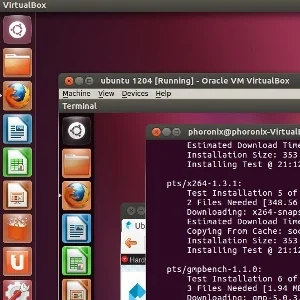Many VirtIO Changes Land For Linux 6.0

The VirtIO pull for Linux 6.0 consists of "A huge patchset supporting vq resize using the new vq reset capability. Features, fixes, cleanups all over the place." Some of the particulars for the VirtIO changes in Linux 6.0 include:
- Notification coalescing support in the VirtIO network device code.
- VDPA suspend operation support so user-space can effectively suspend a device. This is important for live migration support.
- Allowing user control over the number of I/O virtqueues. Rather than always creating 128 I/O virtqueues, the "max_io_vqs" module parameter now allows optionally setting a different number of queues, up to 1024 queues.
- The VDPA simulator block driver has added support for the DISCARD and write-zeroes features.
- Support with VDUSE for using user-space memory as a bounce buffer. This can lead to more efficient use for some applications like SPDK/DPDK by avoiding an extra memory copy from the bounce buffer to huge pages.
- Ring reset support within the VirtIO network code and in turn supporting virtual queue (VQ) resize functionality.
Plus a lot more as outlined in all of the patches making up the aforelinked VirtIO feature pull.
Add A Comment

